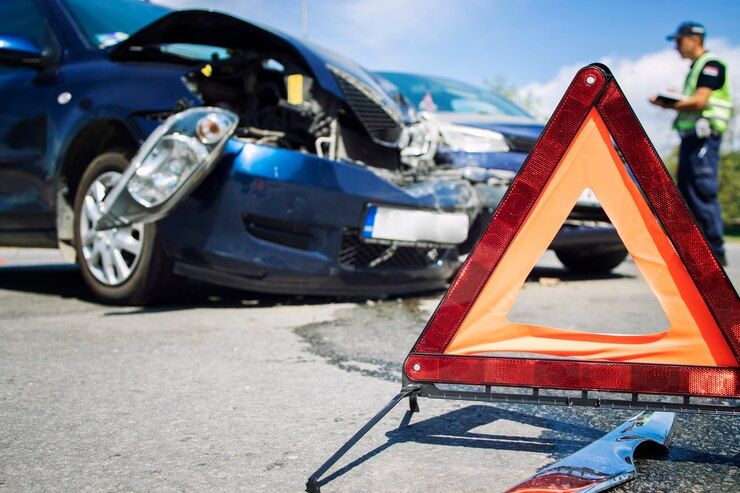
You’re cruising down the streets of Nevada, minding your own business, when suddenly, you collide with a parked car. The twist? The car was illegally parked. Now, confusion and concern set in. What should you do next? Who is at fault in this peculiar situation? Fear not; we’re here to unravel the legal intricacies surrounding hitting an illegally parked car in the Silver State.
What Constitutes an Illegally Parked Car?
Firstly, let’s clarify what is meant by an “illegally parked car.” In Nevada, an illegally parked car refers to a vehicle that is not parked as per the state’s parking laws. Illegal parking could include designated no-parking zones, blocking fire hydrants, obstructing traffic flow, or violating any other parking regulations set by the state or local authorities.
What Should You Do if You Hit an Illegally Parked Car?
If you find yourself in the unfortunate situation of colliding with an illegally parked vehicle, it’s crucial to follow specific steps to ensure compliance with the law and protect your interests. Here’s a step-by-step guide:
Check for Injuries: First and foremost, assess if anyone involved in the accident, whether inside the parked car or your vehicle, is injured. If there are injuries, seek medical assistance immediately.
Contact the Authorities: Report the incident to the local police or law enforcement. They will document the accident, ensuring an official record is in place.
Exchange Information: Collect information about the other vehicle, such as the license plate number, make, and model. Leave a note with your contact details if the owner is not present.
Document the Scene: Take pictures of the accident scene, including the position of the cars, any visible damages, and the surrounding area. This documentation will serve as valuable evidence later on.
Witnesses: If there are any witnesses, ask for their contact information. Their statements can provide crucial insights into the circumstances surrounding the accident.
Notify Your Insurance Company: Inform your insurance company about the accident as soon as possible. Provide them with all the details, photos, and any witness statements you’ve gathered.
Who is At Fault When Hitting an Illegally Parked Car?
Determining fault in a car accident involving an illegally parked car depends on various factors. Nevada follows a comparative fault system, which means that more than one party can share the blame for an accident. Factors considered include:
Duty of Care: Every driver must exercise reasonable care on the road.
Responsibility of the Parked Car Owner: If the car was parked illegally, the owner may share some responsibility.
Circumstances of the Collision: Evaluate the specific details leading to the accident.
Comparative Fault: Nevada follows a comparative fault system. This means that fault can be apportioned between parties involved in the accident. If both parties share fault, the damages may be distributed accordingly.
How Comparative Fault Applies:
Comparative fault applies when more than one party causes an accident. Nevada follows a comparative fault system, meaning that liability can be distributed among multiple parties based on their degree of negligence. This means that the amount of compensation each party receives is proportionate to their level of fault. For instance, if you were 20% at fault, you would receive 80% of the damages.
This is where the assistance of a knowledgeable attorney becomes invaluable. They can help navigate the complexities of comparative fault and ensure you receive fair compensation.
Role of Insurance Company in Illegally Parked Car Accidents
When dealing with an accident involving an illegally parked car, insurance companies will assess the circumstances to determine liability. Your insurance company may consider factors such as whether the car parked was poorly visible or if weather conditions played a role in the collision.
It’s important to note that admitting fault at the scene of the accident can impact your insurance claim. Instead of accepting fault outright, it’s advisable to let the insurance companies and legal authorities conduct a thorough investigation.
Understanding Nevada State Laws in Parking Accidents:
Nevada state laws play a significant role in determining liability and the course of action after hitting illegally parked cars. Some key points to consider include:
Duty to Exercise Due Care: Drivers in Nevada have a duty to exercise due care to avoid colliding with a legally parked vehicle or another object.
Responsibility for Parked Vehicles: The owner of a legally parked vehicle is generally not held responsible for damages caused by a collision unless they were negligent in their parking.
Parking Violations and Liability: If the illegally parked car contributed to the accident due to a parking violation, it may impact the determination of liability.
Seeking Compensation for Damages
If you’re not at fault or share only a portion of the blame, you may be entitled to compensation for damages, including vehicle repairs, medical bills, and other related expenses. Seeking compensation involves working with your insurance company and potentially filing a claim against the person responsible for the crash.
In cases where the parked car owner is partially at fault, you may need to navigate the complexities of Nevada’s comparative fault system to determine the fair allocation of damages.
Why Do You Need an Attorney in This Case?
Hitting an illegally parked car introduces a layer of complexity to the claims process. Insurance companies may try to shift blame or downplay the damages. An experienced Nevada-based attorney can:
Clarify Liability: Attorneys can investigate the circumstances surrounding the accident, gather evidence, and determine liability. This is crucial for building a strong case.
Handle Insurance Companies: Dealing with insurance companies can be intimidating. Attorneys are well-versed in negotiating with insurers to ensure you receive the compensation you deserve.
Navigate Comparative Fault: If the accident involved shared fault, an attorney can help minimize your liability and maximize your compensation.
Explain State Laws: Nevada has specific laws governing traffic accidents and parking violations. An attorney can guide you through the relevant statutes and ensure you adhere to legal requirements.

Get Help from a Practiced Car Accident Attorney at BLG
When a driver hits another vehicle parked illegally, it adds a layer of complexity to the aftermath of a car accident. While Nevada’s rules generally lean towards the moving vehicle being at fault, various factors can influence the outcome. Adhering to the proper procedures, contacting authorities, exchanging information, and documenting the scene is crucial. Understanding the nuances of fault determination and the comparative fault system in Nevada can better prepare you for the legal journey ahead.
If you’ve recently hit an illegally parked car in Nevada and are facing legal complexities, don’t navigate the aftermath alone. Our experienced team at BLG is here to guide you through the process, ensuring your rights are protected and you receive the compensation you deserve.
Contact us today for a free consultation.
FAQs
Who is responsible if you hit an illegally parked car?
In most cases, the responsibility lies with the driver who was moving at the time of the collision. Even if a car is illegally parked, it is the responsibility of the moving vehicle to avoid collisions. However, the specific circumstances and local traffic laws may influence the final determination of liability.
What happens when a moving car hits a stationary car?
When a moving car collides with a stationary car, the moving car is typically considered at fault. The driver of the moving vehicle is expected to maintain a safe distance and drive at a speed that allows them to stop or maneuver to avoid collisions. However, as with any traffic incident, the specific details and local laws may affect the assignment of fault.
What to do if someone blocks your car in parallel parking?
If someone blocks your car in parallel parking, you can take the following steps:
Remain calm and assess the situation.
Check if the driver is nearby; they might not be aware of the obstruction.
Leave a polite note with your contact information, asking the driver to move their vehicle.
If the driver is present, politely ask them to move their car.
If the driver cannot be located or doesn’t respond, you may contact local law enforcement or parking authorities for assistance.
Avoid attempting to move the blocked car yourself, as it may lead to legal issues or damage.





